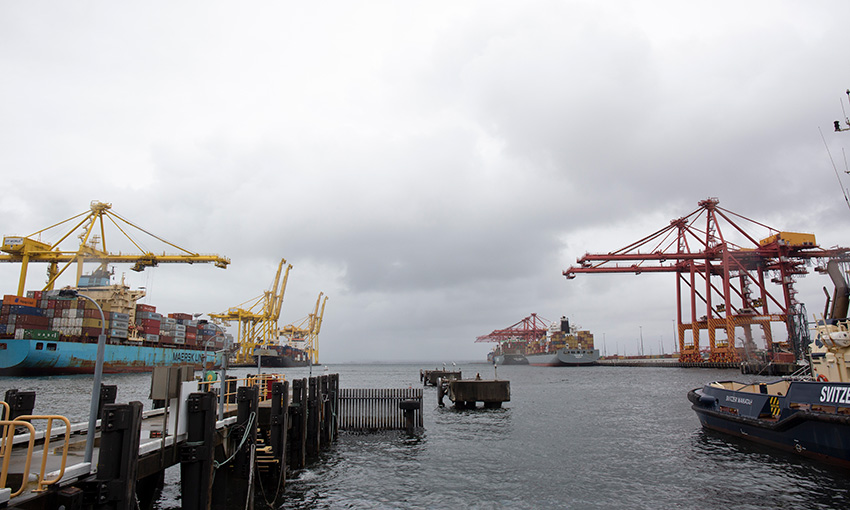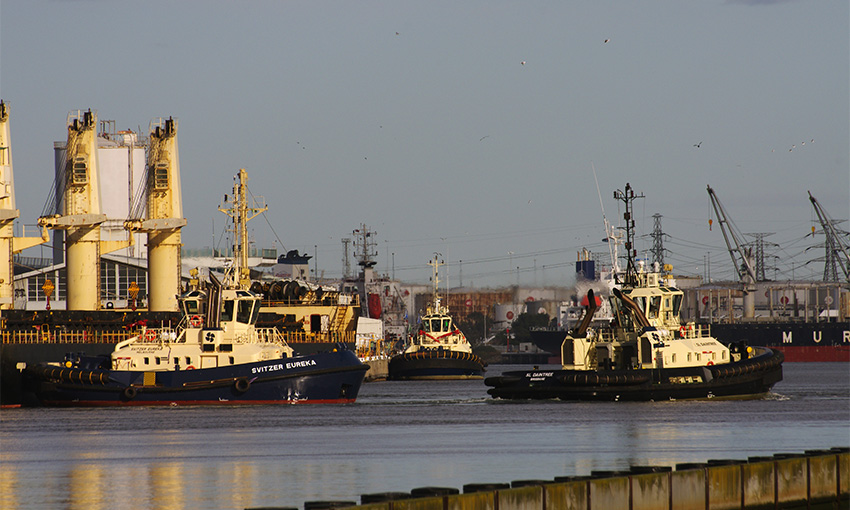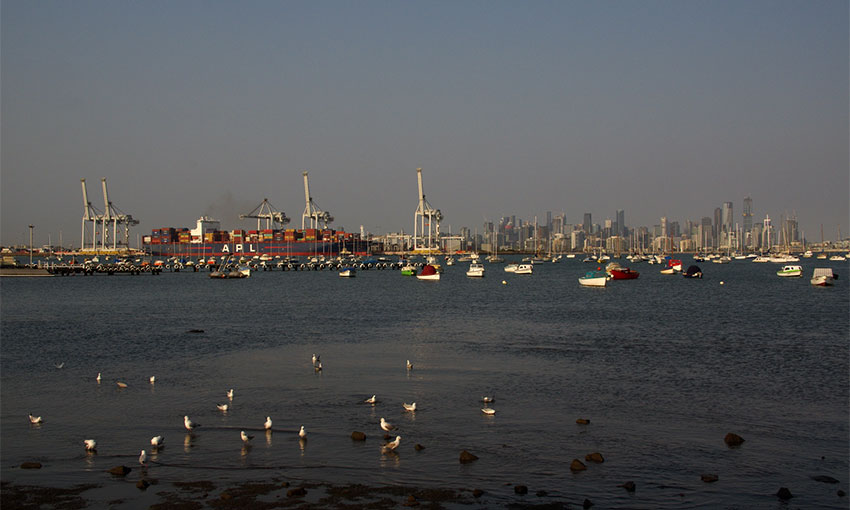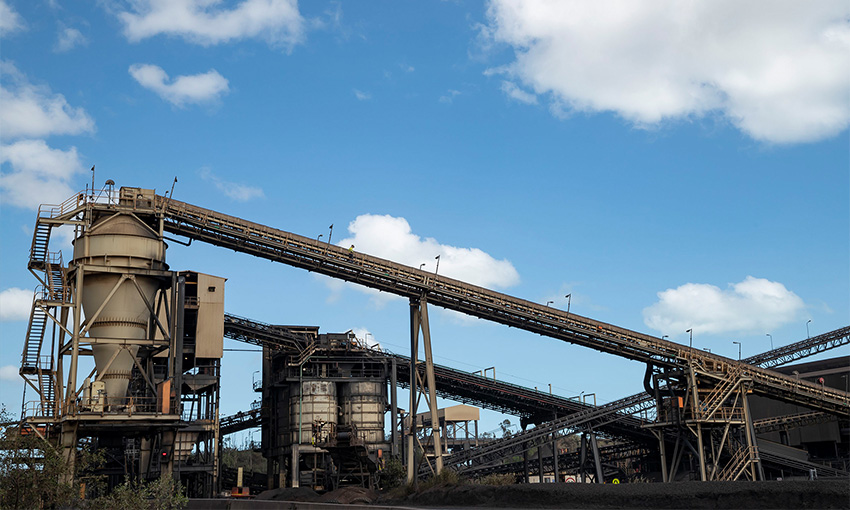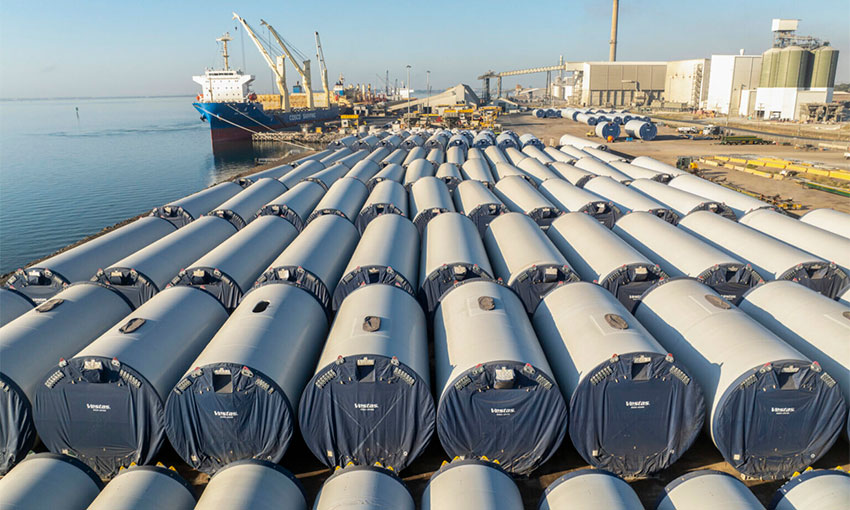THE INTERNATIONAL Transport Workers’ Federation has rejected claims made by the federal government that Australia’s current supply chain challenges are unique to the country, and that potential Christmas freight delays for consumers could be caused by the Maritime Union of Australia and its members.
In a mid-November press conference, Prime Minister Scott Morrison said, “Whether it be on our wharfs, and that’s why it’s very important that we don’t allow the unions on the wharfs to do the wrong thing by our farmers and our manufacturers who need critical supplies coming in and they need critical exports going out”.
Also, while announcing an inquiry into the efficiency of the Australian maritime logistics system, the Prime Minister pointed to industrial action as a “productivity challenge” in Australia’s logistics system.
Speaking about the ongoing enterprise agreement negotiations between Patrick Terminals and the MUA, he said, “We encourage the parties to this dispute to negotiate in good faith and to resolve their issues to get this sorted.
“But at the same time, I want to assure you that our government will take action, if needed, to protect the Australian economy from serious harm,” Mr Morrison said.
IT general secretary Stephen Cotton pointed out that most of the world is experiencing supply-chain disruption presently.
“Globally, unions are working with industry to attempt to alleviate the pressure that has mounted due to an unprecedented global health crisis. The ITF takes a global view on supply chains and we encourage Australian media and decision-makers to do likewise,” Mr Cotton said.
“We understand the reality that policies and disruption experienced in one part of the world will have an impact all the way down the supply chain, ultimately delaying goods reaching consumers. If a worker returns a positive COVID test, Chinese authorities will shut down a terminal or factory for weeks at a time, and that causes delays. If a trucker sits idle in their cab for hours at needless border checks, that compounds the delay.
“Simply put: the disruption, delays and shortages that we’re seeing in global supply chains are not an Australian-only phenomenon and it is definitely not an MUA-related phenomenon.”
Mr Cotton said the global transport industry had recognised and warned world leaders that the supply chain faces serious risk of collapse in September due to the failure of heads of government to take decisive and co-ordinated action to permit transport workers passage across borders freely again and thereby secure global supply chains. The calls were reissued this week by industry leaders who together represent more than $20 trillion of world trade annually and 65 million global transport workers across the supply chain.
The Australian Competition and Consumer Commission, in its Container Stevedoring Monitoring Report 2020-21, found that the demand for containerised cargo brought on by the COVID-19 pandemic, along with extreme congestion across global supply chains, are the major causes of disruptions and delays being felt in Australian ports. The ACCC’s report also outlined that shipping volumes increased by 20% in the second half of 2020 and are up 8% against 2019 pre-COVID baselines.
Mr Cotton said the question for the Australian public to consider is why their government is using this as an opportunity to alienate and attack workers.
“Prime Minister Morrison must stop politicking and should instead work with industry and unions across the logistics sector to resolve issues and allay unnecessary fear and anxiety in the community,” Mr Cotton said.
“Australian political leaders need only look out across the Pacific for inspiration to see how [US] President Biden is working with industry and workers to incentivise cargo clearing.”
The ACCC’s report also discussed how systemic industrial relations issues and restrictive work practices have impacted congestion and delays at ports.
When the report was released, ACCC chair Rod Sims said, “Industrial action on top of pre-existing congestion has unfortunately put enormous strain on our international container ports at a time when they can least cope with it, and in the case of Port Botany, some shipping lines have decided the delays make using the port commercially unviable”.

